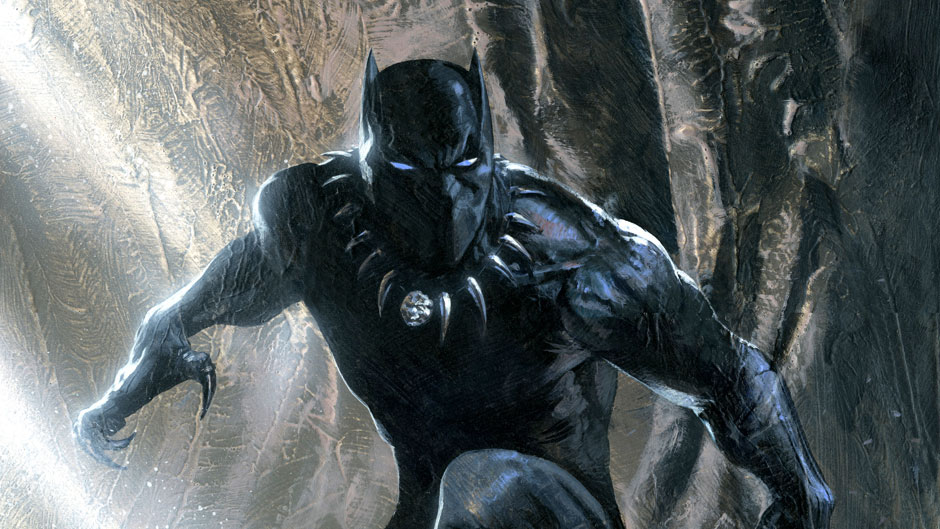The main thing I wanted to discuss about Oronooko is that it is really hard to read, at least for me. These sentences go on and on and on way longer than necessary, and the paragraphs are big and written in a tiny font size. Honestly, it made it REALLY hard to focus on what I was reading and it was making it hard to draw me in, because the sentences kept running instead of moving on and the story takes so long to actually get going.
Honestly, when someone starts a story with 'Before I tell you the story, let me tell you this other thing' and goes on for like two or three paragraphs about it, you know you're in for a long ride. I mean, I'm sure it's probably important information, but I'm a busy man and I want to get down to business.
Anyway, onto the actual story.
One of the first things that struck me was the way the narrator describes Oronooko... By which I mean, it's kinda racist.
Admittedly though, it is the week where have to deal with
uncomfortable racism at the dinner table. So, fitting.
uncomfortable racism at the dinner table. So, fitting.
The answer is always no.
But regardless- I'm about to take this in a very different direction, now that I'm done complaining. So, after reading, it occurs to me that Oronooko is a Prince. "Well duh, Sean," You might say, "We all read the text, we know that." To which I respond, yes, I'm sure you know, I'm not done talking yet so sit down and shut up Captain Sassypants.
The thing is, Oronooko is a Prince of a place called Coramantien. Now, I'm no expert on African geography, but I'm fairly certain there's no country in this day and age called that. I even looked it up. No results. Sounds like it's either an old kingdom that got renamed later, or just never existed.
Or maybe it did and I didn't look hard enough for information. You can't prove anything.
Anyway, where I'm going with this is to say: Oronooko is a Prince, specifically prince of a possibly fictional African country. Maybe he doesn't pull off any majorly heroic feats in this tale- at least, none that I saw- but this situation does sound mildly familiar...
You thought I was done with superhero jokes after the Wife of Bath? Think again.
Yes, ladies and germs, obviously Oronooko is secretly T'Challa, the man who would become King of Wakanda, and the superhero Black Panther. It all makes sense! Or, well, maybe he's T'Challa's ancestor. Or maybe Stan Lee read Oronooko. I mean, there's a few possibilities, right? I'm not crazy.
Anyway, there you have it. My complaints, and my obligatory goofball humor for today. Join us next week on Self & Society for the obligatory Beach Episode.


I'm hoping that we'll all adapt to reading Aphra Behn's lengthy prose the way we adapted to John Milton's lengthy poetry. It'll still be confusing and racist, but at least we'll be able to explain why it is! Also I'd pay good money to see Oroonoko take a swipe at Bucky Barnes's face, as much as I adore Sebastian Stan.
ReplyDeleteThis comment has been removed by the author.
ReplyDeleteFinally, someone agrees with me about the extremely small font and lack of focus phenomenon. However, I can't say I agree with you about the narrator's description of Oroonoko being particularly racist. The quote contains a physical description of lips that a group of people seem to have. It's not even negative. It's just a stereotype. I guess we just have to respect the story's age and, therefore, perspective when analyzing its level of racism. Anyways, your writing style is easy to follow and fun. Every sentence is rather effective, which is refreshing after a lump like Oroonoko, and I thank you for that.
ReplyDeleteThere is something romantic about an ethnic super-hero. He is romantic and brings you flowers and chocolates. You fall in love then you and the super-hero have beautiful mixed children. You love them. They love you. Everyone is super happy. There is this one super-hero that comes from South Africa. The fine artist Loyiso Mikize imagined, created and designed this super-hero. Her creation makes me imagine that including different black African super-heros in my final book would be an interesting topic for discussion. This could tie royalty in black Africa and slavery into a relationship with children today, their interests in royalty, royalty connections and how technological access could bring this information to you. I feel like super-heros similar to Beowulf embody oppression when they are from Africa because they are black and have been oppressed. This superhero which is a product of social media and popular culture is named Kwezi. Kwezi means star in Xhosa and Zulu. These are two tribes of black Africans in Africa. Kwezi comes from Gold City which is very similar to Johannesburg. He is portrayed as an anti-hero obsessed with selfies and Twitter. This reminds me of the black super-hero, Hancock who is an alcoholic and robs, cheats and destroys everything in which he comes in contact. Kwezi starts off on a binge at the beginning of the movie day drinking. He falls asleep in the middle of the road. He wakes up drunk and is belligerently tearing up the city. This hero of the book Oronooko is a smooth operator.
ReplyDelete